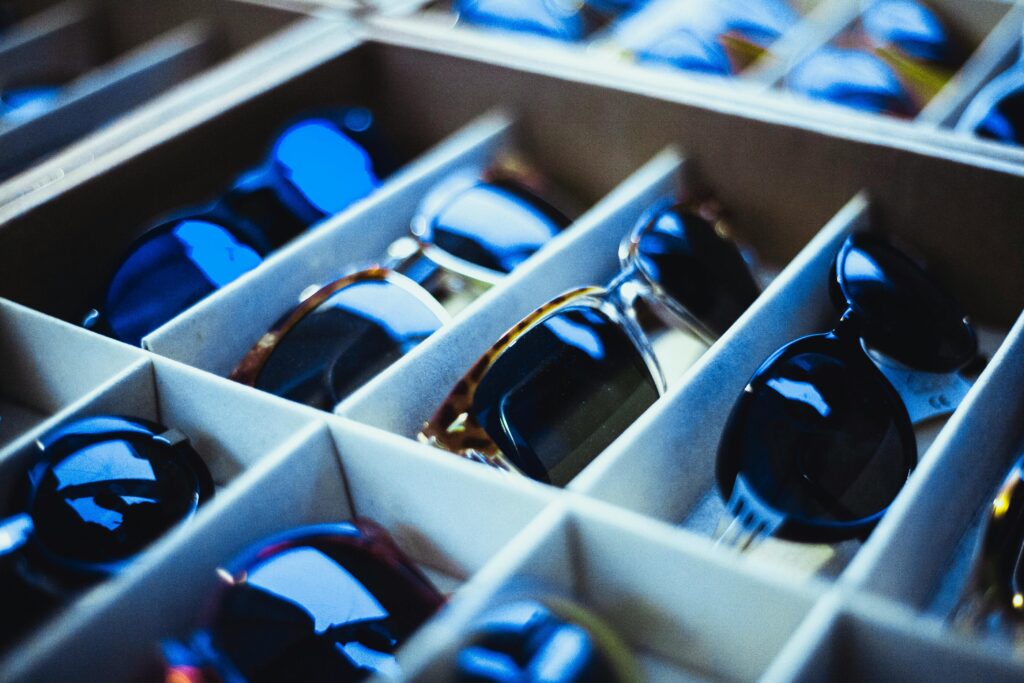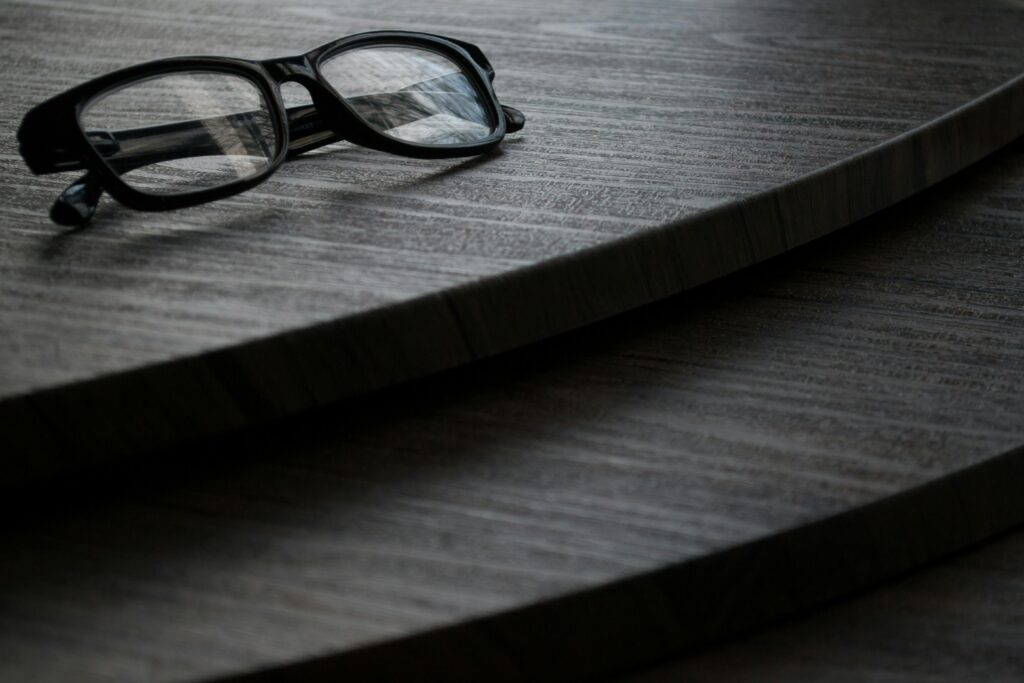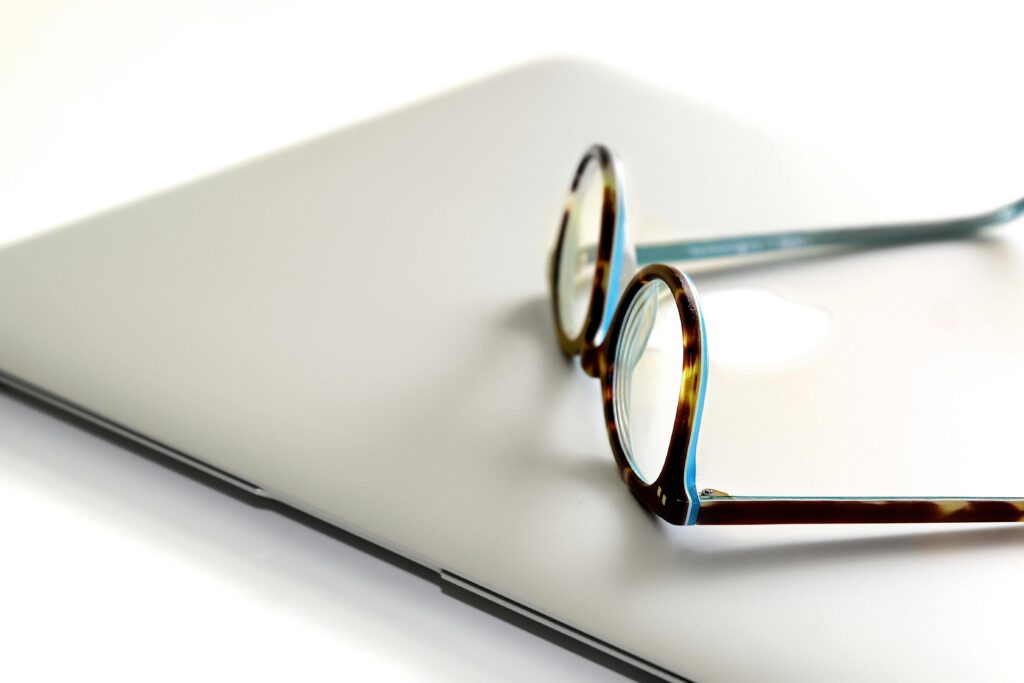Blue light glasses have become a popular accessory in the digital age, where screens dominate much of our daily lives. From smartphones to laptops, the exposure to digital screens is almost constant, raising concerns about the impact of blue light on our health. In this blog post, we’ll explore what blue light glasses are, how they work, and the potential benefits they offer.

What are Blue Light Glasses?
Blue light glasses are specially designed eyewear equipped with lenses that either block or filter out blue light emitted by digital screens. Blue light is a type of high-energy visible light with a short wavelength, which is known for its ability to penetrate deep into the eye and potentially cause discomfort or harm.
These glasses typically have a slightly tinted lens, often yellowish, which helps in filtering out the blue light. The primary purpose of these glasses is to reduce the exposure to blue light, especially during extended screen time, which is believed to help mitigate various symptoms associated with digital eye strain.
How Do Blue Light Glasses Work?
The lenses in blue light glasses are crafted to filter out or block a significant portion of the blue light spectrum. This is achieved through a combination of coating and substrate treatments that absorb or reflect the blue light away from the eyes. The effectiveness of these glasses can vary depending on the quality of the lenses and the specific wavelengths they target. High-quality blue light glasses are designed to block wavelengths that are most disruptive to the human circadian rhythm, particularly those around 455 nm, which are most prevalent in digital screens and artificial lighting[3].
Benefits of Using Blue Light Glasses

1. Reduced Eye Strain and Discomfort
One of the most immediate benefits of wearing blue light glasses is the reduction in eye strain. Digital screens cause a decrease in blinking rates, leading to dry, itchy, or irritated eyes. Blue light glasses can mitigate this by reducing glare and increasing contrast, making it easier to focus without straining[2].
2. Improved Sleep Patterns
Exposure to blue light, especially in the evening, can disrupt the natural sleep-wake cycle, or circadian rhythm, by suppressing the production of melatonin, a hormone that regulates sleep. By filtering out blue light, these glasses can help maintain healthy melatonin levels, potentially improving sleep quality and making it easier to fall asleep.
3. Potential Reduction in Migraine Frequency and Intensity
For individuals sensitive to light, particularly those who suffer from migraines, blue light can be a trigger. Blue light glasses might reduce the frequency and intensity of migraines by minimizing the exposure to the wavelengths most likely to cause these issues[1].
4. Long-Term Eye Health Protection
There is ongoing research into the long-term effects of blue light on eye health, including the potential risk of macular degeneration. While definitive results are still forthcoming, using blue light glasses may contribute to reducing the risk of damage to the retina from prolonged exposure to high-energy visible light[2].
5. Increased Productivity and Comfort
Reducing eye strain and improving comfort can lead to better focus and higher productivity, especially for those who spend long hours in front of a computer. Comfortable vision can prevent the need for frequent breaks and the discomfort that can distract from work or leisure activities[2].

Considerations Before Buying Blue Light Glasses
While the benefits of blue light glasses are promising, it’s essential to approach them as one part of a broader strategy for managing digital eye strain and improving sleep hygiene. Other practices, such as taking regular breaks using the 20-20-20 rule (every 20 minutes, look at something 20 feet away for 20 seconds), adjusting screen brightness, and reducing screen time before bed, are also crucial.
Moreover, the effectiveness of blue light glasses can vary based on the individual’s sensitivity to light and the specific conditions under which they are used. It’s advisable to consult with an eye care professional to determine if blue light glasses are a suitable option for your needs and to ensure that any underlying eye health issues are appropriately addressed.
In conclusion, blue light glasses offer several potential benefits, particularly for those who spend significant time in front of screens. Whether it’s reducing eye strain, protecting against potential long-term eye health issues, or improving sleep quality, these glasses can be a valuable tool in our increasingly digital world.
